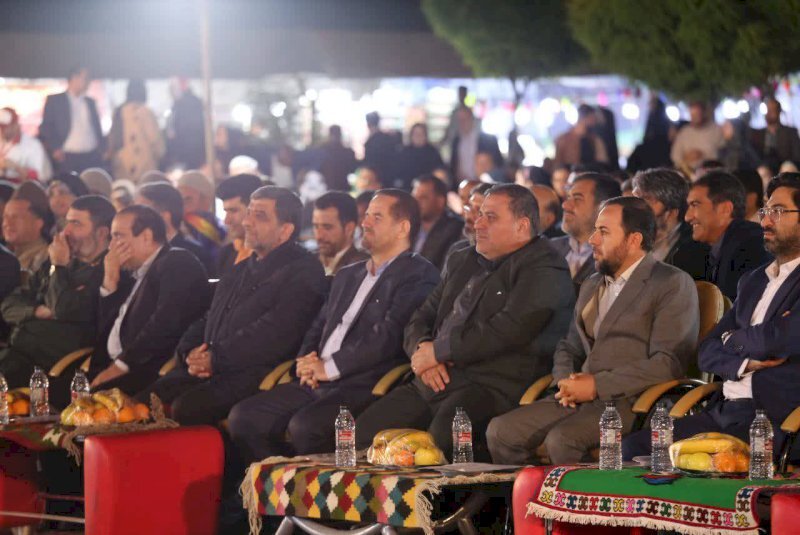Tourism minister attends tribal festival

TEHRAN – On Wednesday evening, Cultural Heritage, Tourism, and Handicrafts Minister Ezzatollah Zarghami attended the opening ceremony of a tribal festival in Yasuj, southwest Iran.
Nomads and exhibitors from 15 provinces take part in the three-day festival, which is underway in the capital of Kohgiluyeh-Boyerahmad province.
Speaking at the ceremony, Zarghami reminded that tribes people are a source of pride for the ancient country.
“Like other ethnic groups and nomads of the country, tribes in Kohgiluyeh-Boyarahmad are a source of pride for our beloved country.”
Moreover, the minister praised nomadic communities for their efforts to preserve their time-honored culture and identity.
“In this festival of nomadic culture, the beauty of the nomadic lifestyle has been well displayed, which deserves recognition.”
“In the nomadic life, all family members, no matter young or elderly, responsibly take their roles to accomplish their routine migrations.”
The most obvious responsibility in a nomad's culture is to respect elders, the minister added.
According to a local tourism official, the festival helps promote the southwest province and its capabilities in the field of nomadic tourism.
Tribe tourism, also known as ethno-tourism or ethnic tourism, provides the ground for potential sightseers to feel like indigenous people by living with a nomad or rural family or enjoying an independent stay.
Experts say this branch of tourism has gained a lot of support and attention in the country over the past couple of years. Many tour operators believe that tribal regions could be deemed as the legacy of human authenticity in their novel cultural and human aspects.
Many nomads surprise visitors with dignity in their rough and overworked hands and integrity in their compassionate eyes at first sight. In popular Iranian culture, literature, and public opinion, nomads have always been a proud part of the nation.
Iran has a culturally diverse society dominated by a wide range of interethnic relations. Native speakers of Persian (Farsi language) are considered as the predominant ethnic generally of mixed ancestry, and the country has important Turkic, Kurd, and Arab elements in addition to the Lurs, Baloch, Bakhtiari, and other smaller minorities such as Armenians, Assyrians, and Jews.
Persians, Kurds, and speakers of other Indo-European languages in Iran are descendants of the Aryan tribes who began migrating from Central Asia into what is now Iran in the second millennium BC.
AFM
